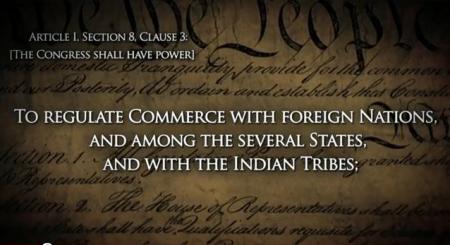 The Attorney General of my home state of Missouri just filed a case in federal court over a California law concerning purchasing chicken eggs. The basic premise is that the California legislature has decided that chickens kept in small coops are being abused. Having watched a few videos (graphic content, beware) I can’t say I disagree.
The Attorney General of my home state of Missouri just filed a case in federal court over a California law concerning purchasing chicken eggs. The basic premise is that the California legislature has decided that chickens kept in small coops are being abused. Having watched a few videos (graphic content, beware) I can’t say I disagree.
No one is disputing that California can pass laws regulating their own state but what Missouri, Iowa, and other chicken egg producing states are questioning is the effect that it will have on them. Missouri sells about 1.7 billion eggs to California consumers. This represents about 33% of their total sales. When California passes regulations about purchasing it affects states like Missouri.
If Missouri wants to keep those sales it must comply with the California regulation. Thus the lawsuit. Missouri says they are being forced by California to comply with regulations designed for that state. That California is forcing many states to comply with its own regulations. This all falls under the Commerce Clause of the Constitution.
The clause is short and sweet but has had a huge impact on laws in the United States. I will end the suspense right away as to where I stand on this issue. As a Libertarian it is my opinion that the Commerce Clause has been stretched, twisted, and maimed beyond all recognition. It is used in all manner of things well beyond what I consider to be its original intent. It reads: [The Congress shall have Power] To regulate Commerce with foreign Nations, and among the several States, and with the Indian tribes;
In this case largely republicans dominated states are angry that they can’t sell to California without abiding by its rules. If you feel that way, go sell your eggs elsewhere. California is a massive state with a huge population and a giant impact on our economy. If you want to do business with them then abide by their laws. The same goes for Texas where there is much debate about the content of schoolbooks based upon Texas laws. If you decide their laws are burdensome and you don’t wish to participate, then don’t. If the price of eggs in California skyrocket maybe they will change their regulatory laws. Maybe other states will decide that the torturing of chickens is disgusting beyond description and pass the same laws themselves. It’s not up to Missouri to decide what California should do or vice-versa.
Anyone wishing to lambaste one party or the other over the implementation of the Commerce Clause merely needs to look at the various cases that include everything from milk, to guns, to health care, to marijuana. Both sides have eagerly and repeatedly attempted to use the clause to extend their own view of government power while attacking the other side for doing the same.
It is an incredible complex question and directly affects the power of the Judicial Branch to overrule the Legislative Branch. It speaks to State’s Rights. When the Judiciary restricts a law it means that judges are overriding the power of elected officials. When states pass laws that hurt other states and this is overruled it means that Congress has power over the states. There are many, many cases and a great deal of literature on the Clause.
I think where the law often goes wrong is when it assumes the federal government has the authority to create a “fair” commercial field. There are examples of the Commerce Clause being used for ostensibly “good” reasons. Result of which made commerce easier and better for American citizens. This is not, in my opinion, a legitimate reason to grant the federal government this power.
Tom Liberman
Sword and Sorcery fantasy with a Libertarian Ideology
Current Release: The Spear of the Hunt
Next Release: The Broken Throne